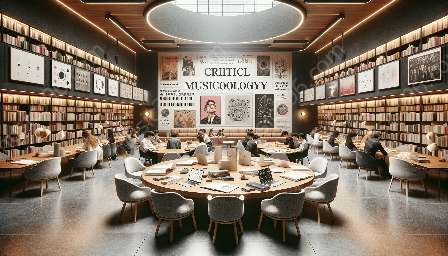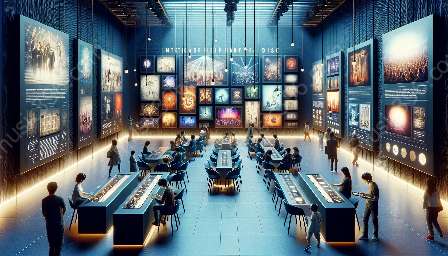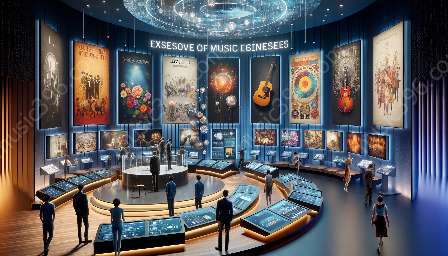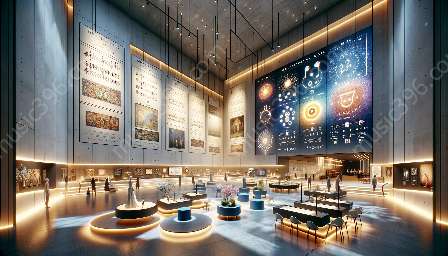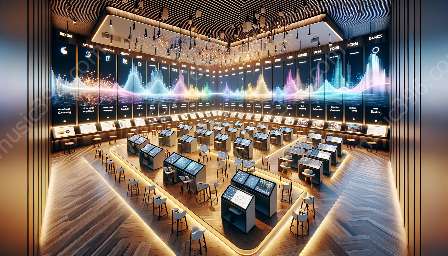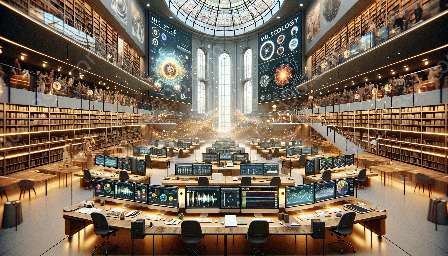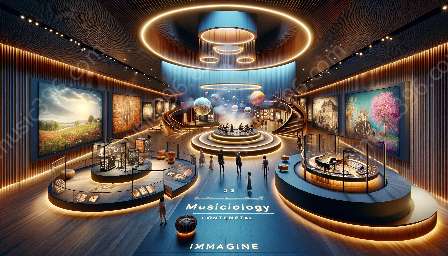Technological advancements have significantly impacted musical composition analysis, altering the way musicians create and analyze music. This cluster delves into the influence of technology on music composition and its role in musicology.
The Impact of Technology on Musical Composition
Advancements in technology have revolutionized the process of composing music, providing composers with an array of innovative tools and techniques to create and experiment with musical ideas. Digital audio workstations (DAWs), software synthesizers, and sample libraries have expanded the sonic palette available to composers, enabling them to produce complex and sophisticated musical compositions.
Additionally, technology has facilitated the integration of electronic and digital elements into traditional music composition, leading to the emergence of new musical genres and styles that blend acoustic and electronic elements in innovative ways.
Role of Technology in Music Composition Analysis
Technological advancements have also revolutionized the field of music composition analysis. Tools such as music notation software, audio analysis software, and digital databases have enabled musicologists and scholars to analyze and interpret musical compositions with greater precision and depth. These tools allow for the exploration of intricate musical structures, harmonic progressions, and rhythmic complexities, providing a comprehensive understanding of the compositional techniques employed by musicians.
Moreover, advancements in music analysis software have facilitated the development of analytical frameworks that integrate technological tools with traditional musicological methods, offering new insights into the interpretation and appreciation of diverse musical styles and genres.
Impact on Musicology
Technology's impact on music composition analysis has significantly influenced the field of musicology. Scholars and researchers can now examine musical compositions from diverse cultural and historical contexts, utilizing technological tools to delve into the nuances of musical expression and creativity.
Furthermore, the use of digital archives and repositories has transformed the way musicologists access and study historical musical manuscripts and scores, broadening the scope of research and enabling the preservation of musical heritage for future generations.
Integration of Technology with Musical Analysis
Musical composition analysis has evolved with the integration of technological advancements, fostering interdisciplinary collaborations between composers, performers, and scholars. With the use of interactive multimedia platforms and digital resources, musicologists can engage in dynamic analyses of musical works, incorporating audiovisual elements to enrich their interpretations and presentations.
Additionally, the application of computational methods and machine learning algorithms in music analysis has opened new frontiers in the study of musical structures, enabling researchers to uncover hidden patterns and correlations within musical compositions that were previously inaccessible through traditional analytical approaches.
Future Perspectives
The ongoing evolution of technology continues to shape the landscape of music composition analysis and musicology. As artificial intelligence and virtual reality technologies advance, the potential for creating immersive and interactive experiences in music analysis and composition exploration grows, presenting exciting opportunities for scholars, educators, and musicians to engage with music in innovative ways.
Ultimately, the symbiotic relationship between technological advancements and musical composition analysis is poised to redefine the boundaries of creative expression and scholarly inquiry, catalyzing transformative developments in the field of musicology.



